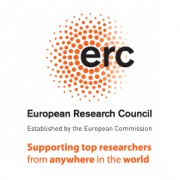News
Call for papers: SKILLNET International Conference 17-18 Nov 2022
Digital approaches to the Republic of Letters: network research, text mining, and infrastructures
Utrecht University, 17-18 November (Thursday & Friday)
Key-note speakers and provisional titles:
Sepideh Alassi (University of Basel – Digital Humanities Lab):
The Bernoulli-Euler Online Project (BEOL)
Eero Hyvönen (Aalto University/University of Helsinki – HELDIG):
LetterSampo – Historical Letters on the Semantic Web: A Framework and Its Application to Publishing and Using Epistolary Data
Why do certain learned people and scientific communities prevail over others? The answers to this question are no doubt to be found in processes of knowledge transfer, authorization, crisis-management, stabilization and community formation. Various projects study these processes using digital technologies. But how exactly do we operationalize such processes in digital research of networks and textual or pictorial repositories? How do we come to answers about power distribution, cultural hegemony and authorization of knowledge, based on digital analyses of big historical knowledge-data?
This two-day conference takes stock of digital research of the learned community of (early) modern Europe. What kind of experiments have been conducted? What kind of historical questions have we been able to answer with DH methods? How successful are we in linking datasets? What are best practices when it comes to merging datasets? What is the state of our current infrastructures?
We invite scholars of all career stages to send in a proposal of max. 300 words to present digital experiments and studies of the history of early modern learning. Although letters are by far the most frequently digitized sources, we also invite presentations about disputations, journals, catalogues, alba studiosorum, alba amicorum, and other media constituting the ecology of sources that students of the Commonwealth of Learning draw on. We will have room for about 10-12 speakers. The proposals will be anonymized by our project manager, Lara Boon, and the SKILLNET team will then review the submissions blindly.
Background
The Huygens ‘ePistolarium’ (2009-2013), the Stanford ‘Mapping the Republic of Letters’ project (2012-2017), and the COST Action ‘Reassembling the Republic of Letters’ (2014-2019) raised the expectations about the DH possibilities by defining standards, based on experiments. Researchers of the ERC SKILLNET project (2017-2022) applied network analysis to Republic of Letters, and text-mining to early modern letters and biographical dictionaries. . In the meantime, the Historical Network Research group and its concomitant journal created a community for historical network analysis, whereas the Max Planck Institute for the History of Science runs the project Socio-epistemical networks: Modelling Historical Knowledge Processes (ModelSEN). While Early Modern Letters Online (EMLO) and CorrespSearch continue to amass ego-catalogues of epistolary metadata, predominantly of the 17th and 19th centuries, respectively, the e-Enlightenment project tries to ‘reconnect the first global social network’, adding digital texts to tens of thousands of metadata of primarily 18th-c. letters.
New research projects have been underway. Some of them are focused on digital editions of the correspondences of individuals, such as the Leibniz-Edition (Akademie-Ausgabe), Pierre Bayle (Antony McKenna), Belle van Zuylen (Suzan van Dijk), Elizabeth Montagu (Nicole Pohl), and Linnaeus, to name but a few. Crowdsourcing projects have given us the letters of Jeremy Bentham and epistolary metadata in the CEMROL project.
Others were focused on merging existing repositories and experimenting with aggregated data, such as he Semantic Computing Research Group (SeCo) from Aalto University and the Helsinki Centre for Digital Humanities (HELDIG) from the University of Helsinki, which created the LetterSampo Framework. Other examples include Bernoulli Euler Online (BEOL), the Networking Archives project, and, lately, the Korrespondenzen der Frühromantik. Together with other repositories such as Archilet (Italy), EpistolArt (Belgium), the Frühneuzeitliche Ärtztebriefe des deutschsprachigen Raums (1500-1700) (Würzburg) and the BIA platform of the Medici Archive Project (Florence), the promises are tantalizing. Yet, in the past five years, we have also learned how time consuming and laborious it is to disambiguate data, merge repositories and link databases into distributed ontologies.
In short, the study of the Republic of Letters is thriving with all sorts of digital experiments, as more and more data become available in better standardised formats. At the same time, the individuals and teams who carry out all these experiments are not yet forming a densely clustered network of their own. An extra goal of this conference is to increase our own clustering coefficient!
Practical information
Please send your abstract to Lara Boon (l.boon@uu.nl) before the 7th of September. We will review the submissions and give notice ultimately on the 16th of September 2022. Travel costs and overnight stays will be covered by SKILLNET.
This project has received funding from the European Research Council (ERC) under the European Union’s Horizon 2020 research and innovation programme (grant agreement No 724972).
You must be logged in to post a comment.


